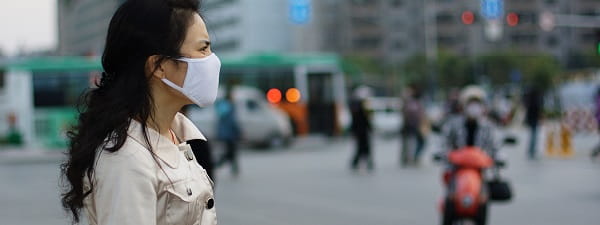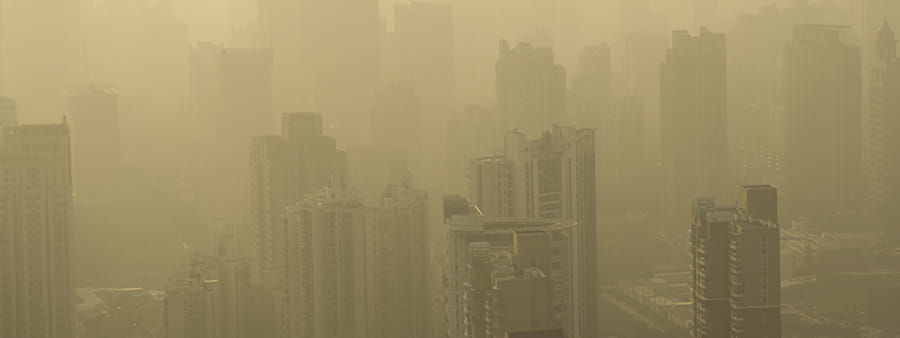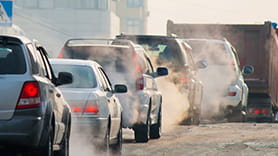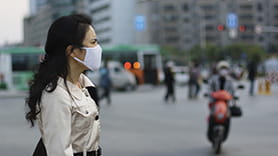Air Pollution
Last updated: 16th December 2015
A breath of fresh air?
How to protect your staff from air pollution
What happens to your employees in an area with a hazardous level of air pollution? Can it stop your people from achieving your business objectives?
The World Health Organization (WHO) estimates that in 2012 around seven million people died – one in eight of the total global deaths – as a result of air pollution. Most of the urban locations that monitor air quality fall short of the WHO guidelines for clean air. Places with rapid economic growth and development, like Beijing, Delhi and Ulan Bator, are significantly affected by poor air quality.

International SOS is playing a leading role in providing specific advice and support for medical and security risks, no matter where your people are. Our specialist teams are working around the clock to keep your employees protected and business moving.
- Assess and understand the risks of exposure at your destination: We analyse and evaluate any location you are sending your employees to and recommend measures that help mitigate risks.
- Educate your travellers before they depart: Through our specialist medical information and education programmes, we help you to prepare your travellers for the local situation as well as advise on measures to take should the situation deteriorate.
- Around the clock access for your travellers to specific local advice: Our qualified doctors and security specialists are there for your employees, no matter what, where or when.
- Stay connected with your travellers and keep track of them in a high risk location: We make sure your employees receive the latest information and are prepared at all times.
Achieve your goals and avoid loss of time and productivity by preparing your employees for travel and supporting them when they are in unfamiliar and remote locations. We help to keep your people healthy and safe, so you can focus on your core business activities.

FURTHER INFORMATION
Growing concerns and our advice to clients in northern China
Our team of experts recommend common-sense behaviours in terms of preventive measures that can minimise the impact of air pollution, such as avoiding rigorous outdoor exercise on high pollution days.In recent years, the Particualte Matter levels in China’s northern provinces have risen dramatically, creating dense ‘peasouper’ smog, the likes of which has not been seen in Europe for many decades.
Dr Gordon Peters, International SOS’s Medical Director for North Asia, explains: “The key to prevention at this stage is awareness. We have a unique global network, which allows us to monitor local situations closely and provide timely advice to our clients and the wider community.”
“Through simple, sensible actions and behaviour modification, people can mitigate the risks. There’s a lot of panic and media attention surrounding this issue, and people often feel they have to rush out and buy masks and air purifiers.”
The International SOS dedicated air pollution website (membership required) provides reliable, timely information on air pollution and how it is measured, health effects, precautions to take, and key city and country information.
What is air pollution?
Air pollution consists of unwanted gases, dust and particles known as ‘pollutants’ that are potentially harmful to humans, animals and the environment. Natural sources of air pollution include sand, wind-blown dust and smoke from fires, while man-made air pollutants arise from industrial and vehicle emissions and certain agricultural processes.In Beijing in February 2014, the air quality was so poor, the city issued an ‘orange alert’, which stopped school outdoor activities, required some manufacturing processes to be suspended, and halted outdoor construction. In Paris in March 2014, air pollution levels reached unhealthy levels, prompting authorities to advise some to avoid being outdoors at certain times, and restricting the use of private cars in the city.












